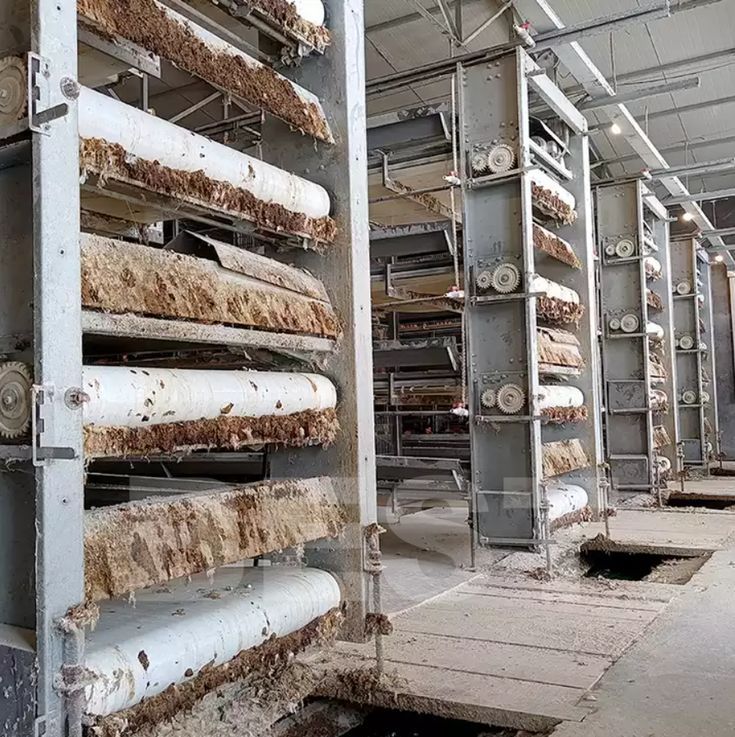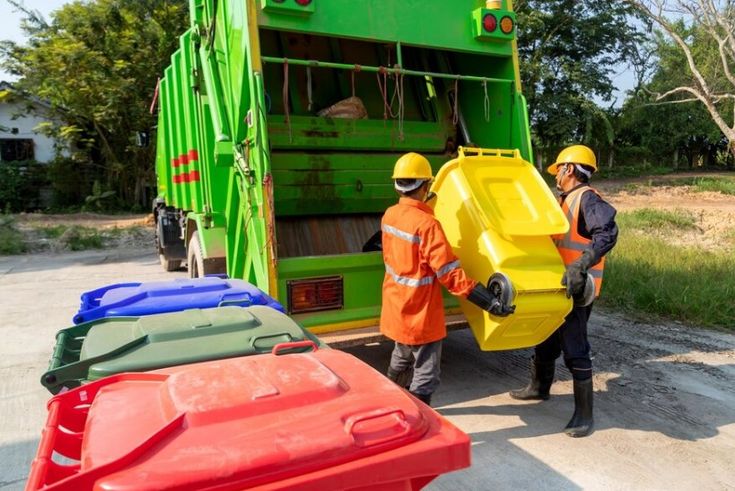Sustainable waste management practices are essential for African poultry layer farms to minimize environmental pollution, improve biosecurity, and maintain the overall sustainability of their operations. Here are some key practices for sustainable waste management in African poultry layer farms:

- Manure Management: Proper management of poultry manure is crucial to prevent pollution and utilize it as a valuable resource. Farmers can adopt the following practices:
- Regular Removal: Implement a regular manure removal schedule to prevent accumulation and reduce the risk of disease transmission. Manure should be removed from the poultry houses and storage areas promptly.

- Composting: Composting is an effective method to decompose and stabilize poultry manure. Farmers can create compost piles or use composting systems to convert manure into nutrient-rich compost. This compost can be used as fertilizer for crops or sold to other farmers.

- Storage and Handling: Manure should be stored in covered and well-maintained storage facilities to prevent runoff and odor emissions. Proper handling equipment, such as loaders or spreaders, should be used to minimize spills and ensure efficient distribution of manure.

- Nutrient Management: Proper management of manure nutrients is crucial to prevent nutrient runoff and optimize fertilizer use. Farmers can adopt the following practices:
By the way you should Note that our company can help you to start by giving you all the necessary information you need to get started if not yet in the business. Please check our online shop, we have all the standard business proposals for different capacities at very a cheap price made by the best agricultural specialists as well as Standard design plans that are made by the best agricultural architects around the globe. please visit our online shop now using the links below to witness by yourself
Design plans (FARM HOUSE DESIGNS – Kimd Construction & Farm Consultants)
Business plans (BUSINESS PLANS & PROPOSALS – Kimd Construction & Farm Consultants)
Welcome back from visiting our shop, hope you have placed your order for any of our products or you can place it after navigating more of our informative articles.
So let’s continue with our article!
- Nutrient Testing: Regularly test the manure for nutrient content to determine the appropriate application rates. This helps avoid over-application of nutrients, which can lead to environmental pollution.
- Precision Application: Utilize precision application techniques, such as variable-rate technology or targeted application, to apply manure at the right time and in the right amounts. This ensures efficient nutrient utilization by crops and reduces the risk of nutrient runoff.
- Crop Rotation and Cover Crops: Implement crop rotation and cover cropping practices to utilize nutrients effectively and reduce nutrient leaching. Different crops can take up different nutrients, and cover crops help prevent soil erosion and retain nutrients in the soil.
- Water Management: Proper management of water resources is essential to minimize water pollution and ensure efficient water use. Farmers can adopt the following practices:
- Stormwater Management: Implement proper drainage systems to prevent runoff and control erosion. This helps to minimize the transport of pollutants, including nutrients and pathogens, into water bodies.
- Irrigation Management: Use efficient irrigation systems, such as drip or sprinkler irrigation, to minimize water wastage. Proper scheduling and monitoring of irrigation can help avoid overwatering and leaching of nutrients into groundwater.
- Water Recycling: Consider implementing water recycling systems, such as capturing and treating wastewater, to reduce freshwater consumption and minimize water pollution.
- Biosecurity Measures: Effective biosecurity practices are crucial for preventing the spread of diseases and minimizing the need for excessive use of antibiotics or chemicals. Farmers can adopt the following practices:
- Strict Hygiene Protocols: Implement strict hygiene protocols, including regular cleaning and disinfection of poultry houses, equipment, and vehicles. This helps prevent the introduction and spread of diseases.
- Pest and Rodent Control: Implement measures to control pests and rodents, as they can transmit diseases to the flock. This includes proper waste management to minimize attractants and potential breeding sites.
- Disease Monitoring and Surveillance: Implement regular disease monitoring and surveillance programs to detect and respond to potential disease outbreaks promptly. This helps prevent the spread of diseases and minimizes the need for excessive use of medications.
- Renewable Energy and Technology: Explore the use of renewable energy sources and technology to reduce the environmental impact of poultry farms. Farmers can consider the following practices:
- Solar Energy: Install solar panels to generate renewable energy for the farm’s electricity needs. This helps reduce reliance on fossil fuels and lowers greenhouse gas emissions.
- Energy-Efficient Equipment: Use energy-efficient equipment, such as LED lighting and energy-saving ventilation systems, to minimize energy consumption and reduce the carbon footprint of the farm.
- Waste-to-Energy Systems: Explore waste-to-energy technologies, such as anaerobic digestion or biomass gasification, to convert poultry waste into biogas or electricity. This can help reduce waste volume, generate renewable energy, and minimize environmental pollution.
By implementing these sustainable waste management practices, African poultry layer farms can minimize environmental pollution, enhance biosecurity, and contribute to the overall sustainability of the poultry industry in Africa.
You can also explore about how to prepare feeds for goats on zero grazing.




